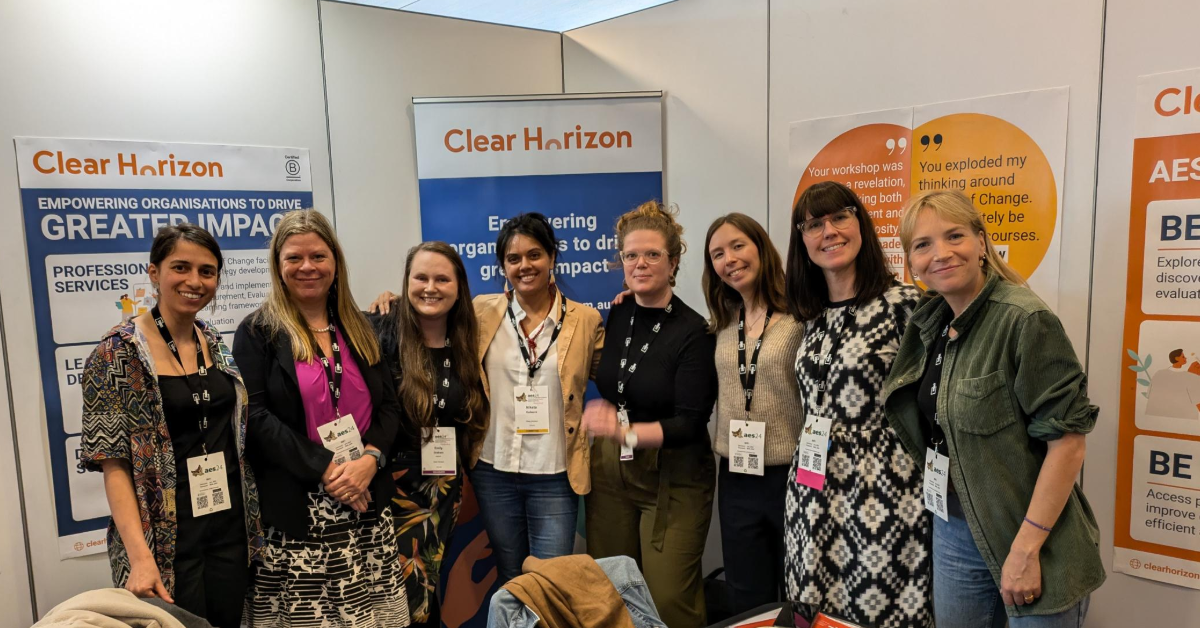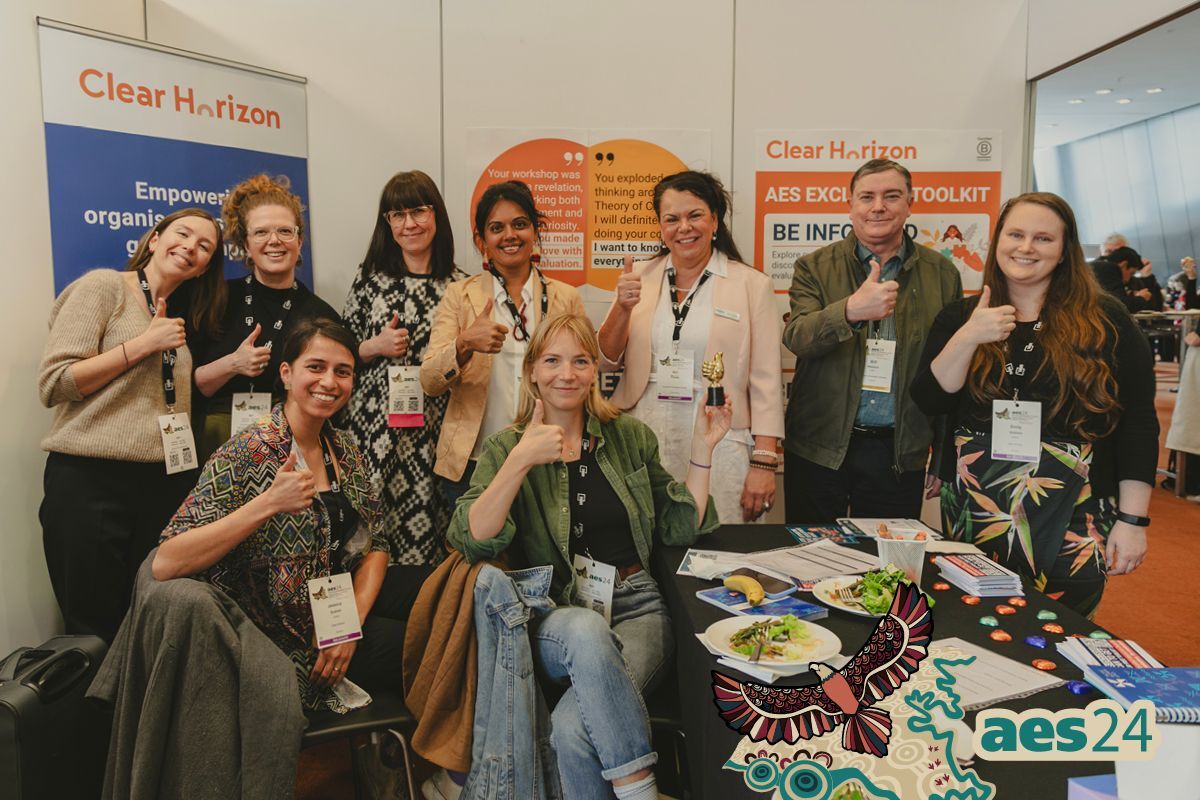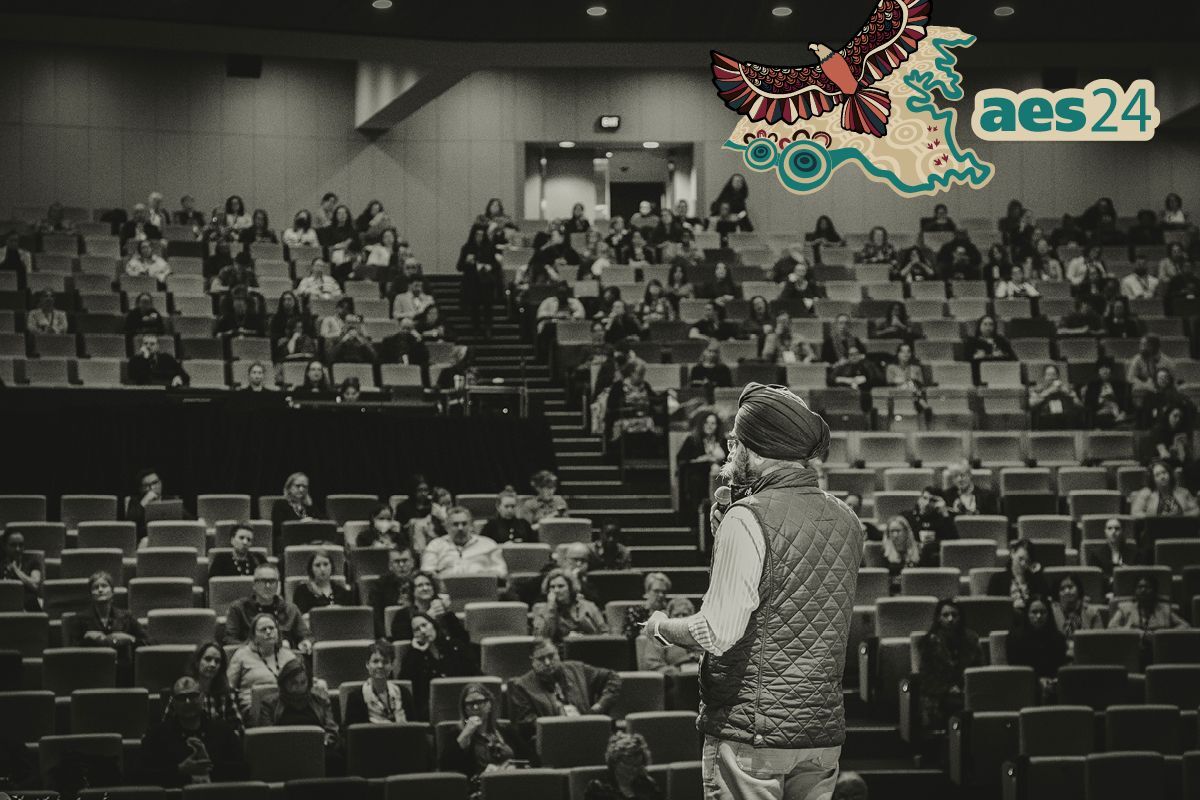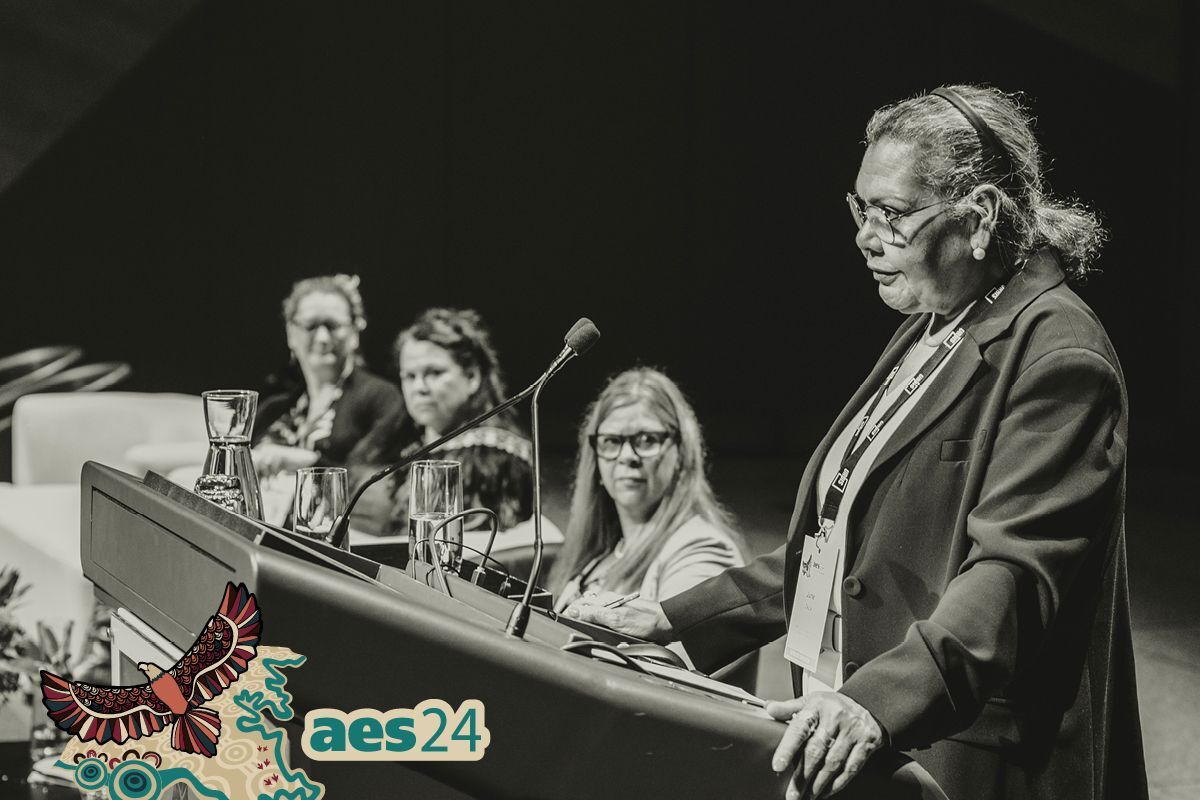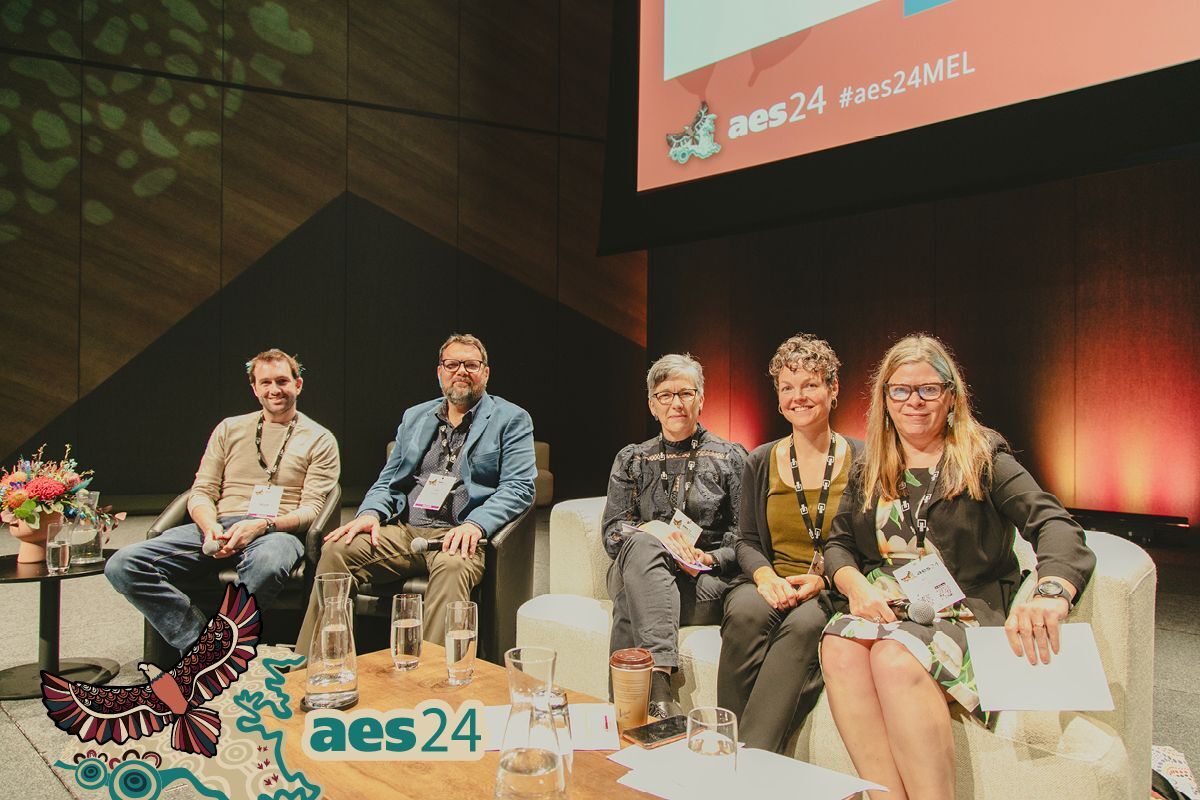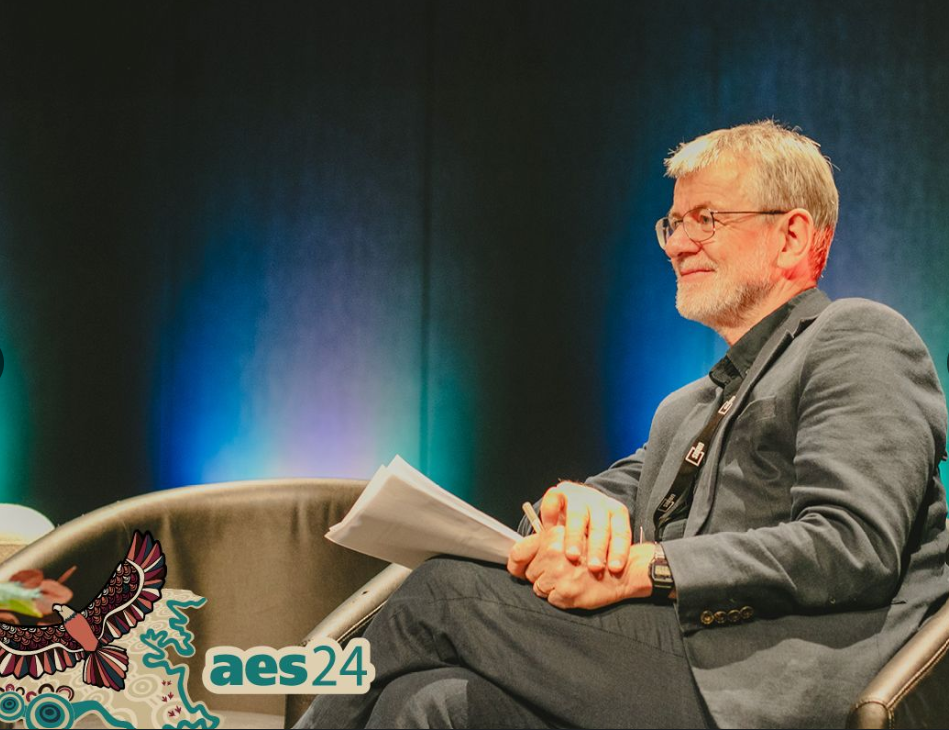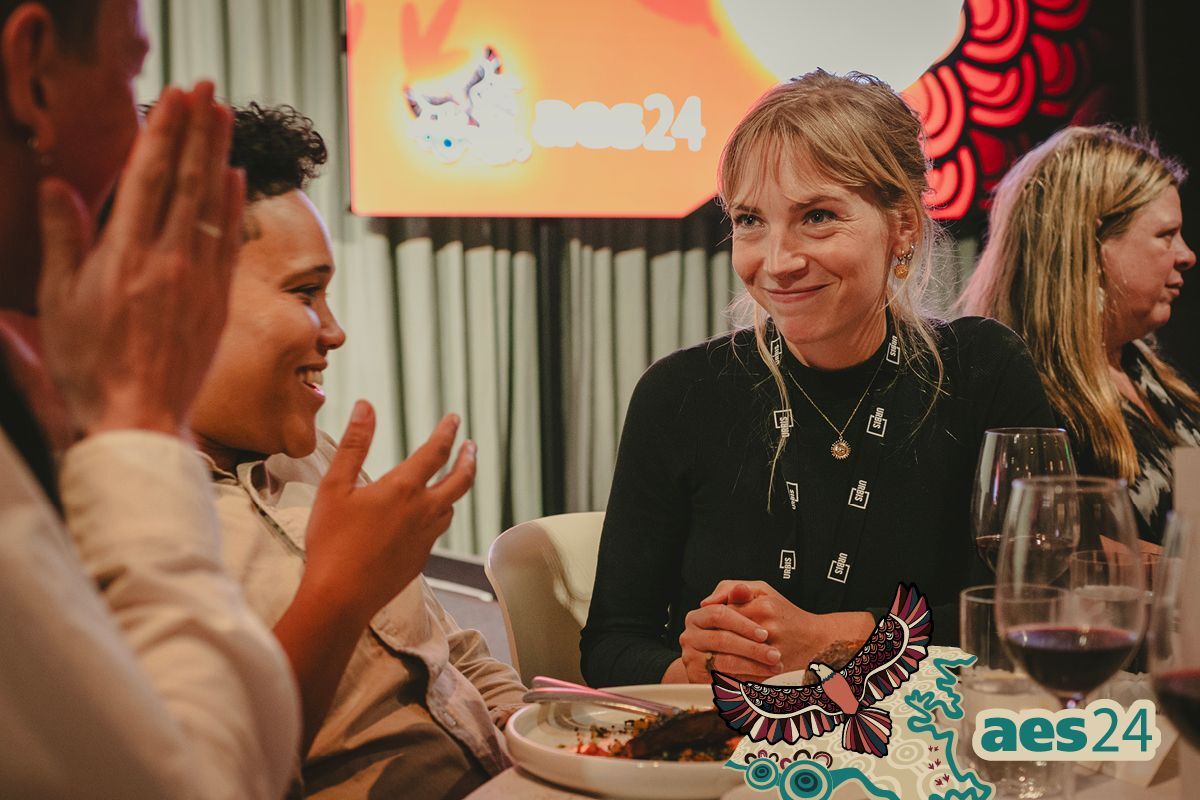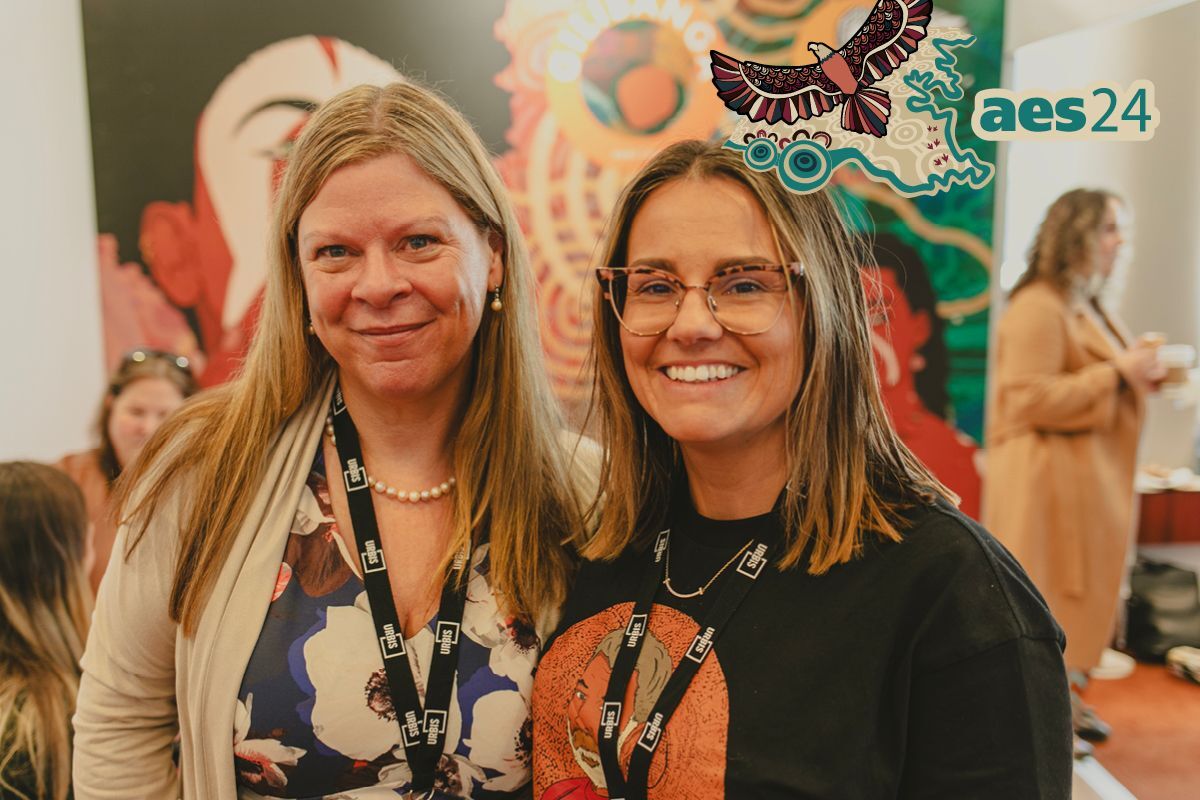Written by Jess Dart
I hope you’re having a good September. We have finished a full-packed week at the Australian Evaluation Society (AES) conference in Melbourne. It was huge for us at Clear Horizon, as it’s our hometown, Naarm, Melbourne, and for me, as I played the role of co-convenor. Clear Horizon had a stand next door to our close partners, KOWA Collaboration, and it was lovely to hang with them, too. It was the biggest-ever AES conference AES, with over 1,050 delegates. It was also great to see such a sizable presence of First Nations People at the event too (my guess would be over 100), with the biggest cohort of support grantees. It is so interesting to observe the evaluation sector doing so well at a time when adjacent fields are struggling.
So, what were my takeaways? Well, unsurprisingly, there is a growing conversation about systems change, how to centre First Nations Wisdom within this, and how evaluators might play a role. There was also a call to rethink what is good evidence in this work and to more deeply centre lived experience and deep knowing.
Photo of Indy Johar. Copyright: AES
The amazing Indy Johar provided a wakeup call for us in his Friday Keynote, laying out the bare facts one-after-another about why our trajectory on this planet is not good. At the end, he said,
“This is why I came, this is why I am here, we need you”.
So yes, it’s time for the evaluation community to get out of program land and help join the dots about why things are so stuck and what we can do to shift them.
In her incredible keynote address June Oscar AO provided us with a profound overview of what needs to change with groundbreaking work on Wiyi Yani U Thangani: re-imagining evaluation with a gender justice lens. Amongst many takeaways, she reminded us that:
“You cannot deconstruct the Master’s house with the Master’s Tools”.
Photo of June Oscar AO. Copyright: AES
Copyright: AES
Then, our rising star, Elizabeth Hoffeker, presented us with a detailed and generous overview of how evaluation can play out in a complex dynamic systems change initiative right across innovation and value chains at scale. It was nice to see familiar tools, such as theory of change and after-action reviews being mentioned, albeit their use at a different “altitude”.
I also had a lot of fun with James Copestake, who was up for a boogie at the conference dinner and implored us to take a future lens to our work as evaluators:
“Don’t try driving forward by looking in the rear mirror”.
He argued that as evaluators, we are often asked to find out ‘what caused what’ in the past, but that further effort should be made to move beyond ‘what worked?’ to ‘what next?’- from outcome-activity links in the past to scenario-action possibilities and options in the future. Very exciting!
James Copestake. Copyright: AES
Photo of Ethel Karskens. Copyright: AES
There were many more great sessions and presentations during the concurrent sessions. Our fantastic Ethel Karskens filled the room and provided an energising session on using AI in evaluation, more specifically, the exploration of the transformative potential of AI in qualitative data analysis within evaluation contexts. She equipped attendees with actionable strategies and insights to harness AI’s power effectively to elevate the quality and efficiency of their evaluation processes. If this topic interests you, keep a lookout for a follow-up from Ethel on her talk soon.
Dr Skye Trudgett from Kowa Collaboration explored a different approach to evidence using a wisdom tapestry, and we got our hands on some clay and natural materials to envisage the MEL system in our own lives.
A huge thanks to the Australian Evaluation Society for hosting such a brilliant coming together of minds, to all the sponsors, the attendees, and the teams in the background making it all flow so seamlessly.
Photo of Jess Dart and Skye Trudgett. Copyright: AES

